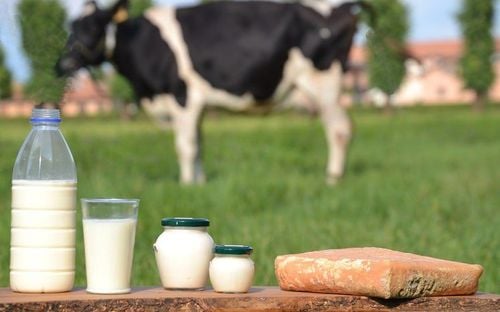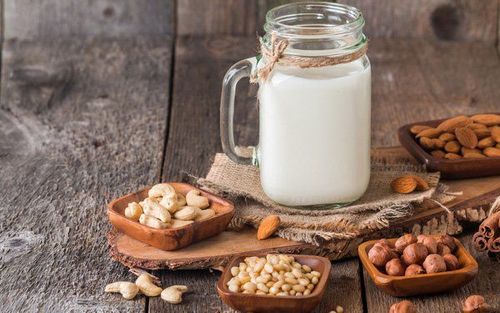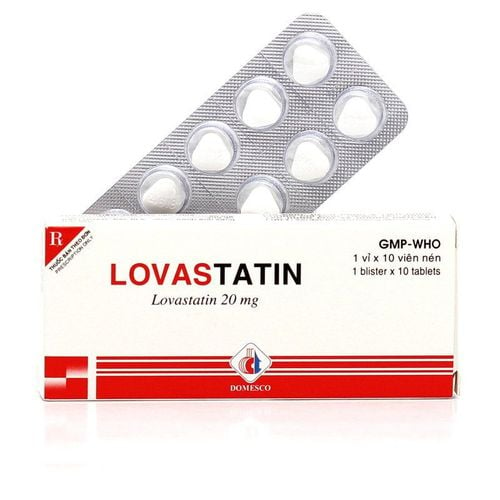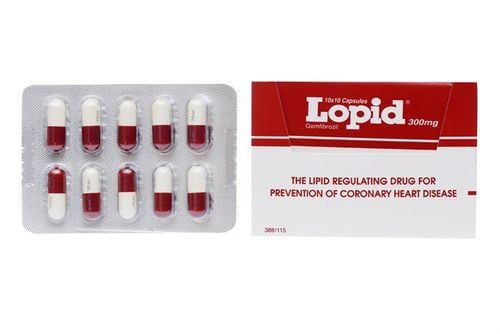This is an automatically translated article.
Plant-based milks are increasingly popular such as: soy milk, almond milk, walnut milk, even milk made from rice, oats, corn, beans. Choosing a plant-based product seems like a healthy choice. Is this true, is plant-based milk better for you than cow's milk?
1. Difference between plant milk and cow's milk
While traditional cow's milk still dominates the dairy market, just one look at the refrigerator at a grocery store shows that retailers are increasingly selling more sourced milk alternatives plant. There are many questions raised like how to make milk from a nut, is plant milk good for health? How does the nutritional composition of plant-based milk compare to cow's milk? Are plant-based alternatives really dairy?
Plant-based milk is made by grinding beans or seeds, then adding water, sugar, flavors, vitamins and minerals. The nutrients and sugar levels in plant-based milk vary considerably based on how it is produced and what ingredients have been added.
Cow's milk contains protein, calcium, riboflavin and potassium. The nutrients are consistent in all products, but the amount of fat varies from fat-free, low-fat and full-fat. Calcium-fortified soy milk is the closest thing to cow's milk, but it's lower in other nutrients than cow's milk. The big difference between cow's milk and plant-based milk is the protein. The quality of vegetable protein is generally not as high as that of animal protein. Cow's milk has a lot of protein that humans need in their diet. Some plant-based milks are very low in protein, which can be a concern for children and the elderly. Plant-based milk is becoming more popular because some people like the taste and variety of flavors. It is also preferred by people who are allergic or intolerant to cow's milk. Experts encourage milk drinkers to read labels and choose milk based on nutrition facts, price and personal preferences.

Sữa bò chứa protein, canxi, riboflavin và kali cũng như nhiều vi chất khác
2. Plant milk and cow's milk, which is better?
Cow's milk is high in protein and other important nutrients, including fats and carbohydrates. It also contains some anti-bacterial properties and has been shown to help babies fight fevers and respiratory infections, researchers say. But science also acknowledges that cow's milk raises health concerns. It can carry harmful pathogens, including salmonella and E.coli bacteria, and many babies and children are allergic to cow's milk. For adults, many people are lactose intolerant, which means they lack an important digestive tract enzyme for absorbing lactose-rich foods like cow's milk. This is common among blacks, Asians, and Native Americans. Plus, with the desire to lower cholesterol and the growing interest in vegan diets, many consumers have turned to plant-based milk as an alternative.
With today's popular plant-based milks, coconut milk is low in calories and appreciated for its taste, but it does not provide protein and contains a lot of saturated fat. Similarly, almond milk is also low in calories and appreciated for its taste, while providing as much fat, carbohydrates and protein as cow's milk. However, it poses a potential problem for people with nut allergies. Rice milk ranks similarly to cow's milk in terms of calories, but contains more sugar and does not provide an equal amount of fat, carbohydrates and protein. Soy milk is a potential problem for people with soy allergies. But it is rich in protein, while providing the same balance of fats and carbs as cow's milk.
In general, soy milk is the closest nutritionally to cow's milk. However, plant-based milk does not have the same nutritional profile as cow's milk and should not be viewed as a direct substitute, as most consumers do today.
Plant-based milk alternatives can play a role in the diet, especially for people with a cow's milk allergy or lactose intolerance. But it's important to understand that plant-based milks aren't nutritionally superior and don't quite live up to the hype about health benefits that many people put on them.

Sữa hạnh nhân cũng có hàm lượng calo thấp và được đánh giá cao về hương vị
Cow's milk is still the best choice in many cases, especially for babies and toddlers who need calories, protein, fat and calcium for growth and development. If you are concerned about the fat content of cow's milk, you can consider choosing low-saturated fat milk, for those who are lactose intolerant, there are also many types of cow's milk on the market today. contains lactose.
Please dial HOTLINE for more information or register for an appointment HERE. Download MyVinmec app to make appointments faster and to manage your bookings easily.
Reference source: health.harvard.edu; webmd.com












